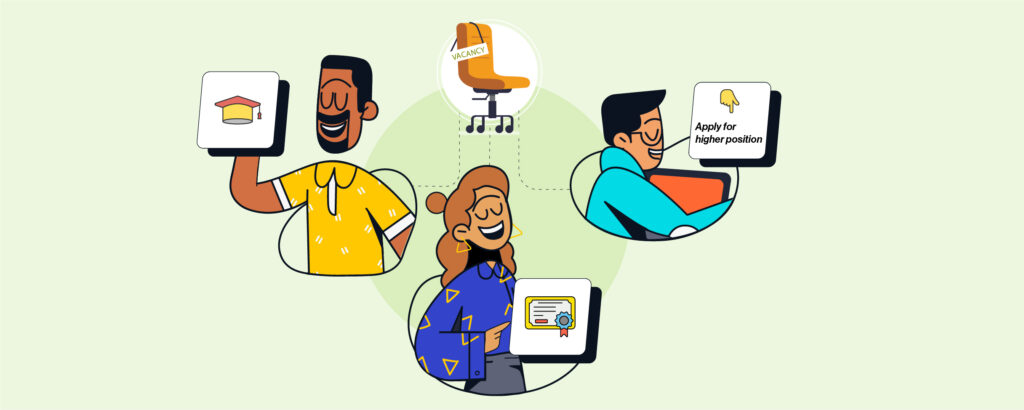As learning veers virtual and almost everything requires an online presence, how can we learn to use technology effectively? Digital literacy is the new basic skill almost everyone needs.
As of 2021, 4.6 billion people, almost 60 percent of the world’s population, use the internet. If the internet were a country, it would easily be the largest by population in the world—three times the size of China, which comes in at a measly 1.4 billion people in comparison. In a little more than twenty years, the internet has grown from a virtually unregulated, somewhat amateur enterprise to become the primary place for everything from retail to education to social interactions.
As with any other human enterprise, the internet sees the best and the worst aspects of human behavior. You can learn practically anything you want and connect with people from all over the world, while simultaneously being vulnerable to scams, data theft, and invasions of privacy. Not everyone has the knowledge to navigate the internet effectively. That’s why we need to develop digital literacy skills.
What is digital literacy? Simply put, it is the skills that allow you to use communication technologies effectively—the skills to find information or content you need, evaluate the information you find, communicate effectively, and keep yourself safe from the dangers online. This is an emerging and necessary skill for learners, but also for anyone who spends time online.
Let’s look at the top six areas of focus to develop digital literacy.
Understanding how the internet works
This aspect is fundamental to all the other aspects of digital literacy. Understanding how the internet works doesn’t mean knowing how to code or how to build a website, though. To navigate the online world, you need to understand the mechanisms and decisions by which content is developed on the internet and how that content reaches you.
Let’s look at one instance. In the early days of the internet and search engines, almost anyone would get the same results when performing a search. This is no longer the case. As companies begin to collect more user data, you increasingly get content that is targeted just to you. Your preferences, location, previous search history, shopping history, other content you’ve consumed, and even the preferences of your friends or people like you determine what you see when you search for something or open a website. What you see is driven by algorithms—sets of rules by which a website decides what you will see.
Increasingly, online entities are using data they get from you. It’s convenient to be able to call a cab wherever you are and track your route home, but that app gets information by tracking where your phone is.
Understanding a little about the how the internet works will help you make better decisions online.
Knowing how to access the services you need
Need a passport? You probably have to apply online. If you make a purchase from Amazon or another online store, you need access to some form of online banking. If you’re looking for a job, it helps to be able to locate openings, apply online, and send and receive emails from prospective employers.
Being able to locate necessary services and use them is a primary skill that everyone needs, even if they don’t use the internet for much else. Accessing services requires a combination of many skills, including:
- Searching for the right site
- Navigating around sites (common terms, icons, and movements needed)
- Adding information and uploading pictures or documents
- Sending and receiving email
Think of these skills as the kindergarten and first grade of digital literacy. These are things you need to know to be able to do pretty much anything online.
Talking to others effectively and safely
Whether it’s text, email, comments on online content, or social media posts, much of online life is spent in communicating with others. However, digital communications are different from face-to-face communication in a number of ways. Here are some points to keep in mind:
- Etiquette matters. Every platform has its own conventions and terms. Pay attention to the way other people communicate in different scenarios (all-caps, using emojis, using slang, etc.) to decide what’s appropriate for you and each platform. Above all, be kind. It’s easy to criticize or get sucked into contentious debates in the seeming anonymity of the internet, but that’s generally not a productive use of time.
- It’s difficult to convey tone and intonation in text, and recipients could easily misinterpret what you say. Language or cultural differences could also affect how your words are understood, so it’s important to keep the intended audience in mind and craft your communication accordingly.
- Digital communications may seem private, but very often aren’t. You cannot be sure how what you say or pictures you post may reach others, so it’s best to make sure you are comfortable with your information reaching unintended recipients.
- It’s easy for online communication to get taken out of context. Internet content is increasingly meme-driven. Short pieces of content, screenshots, or pictures are shared widely and commented on or (often) ridiculed. Be aware that the most innocent communications could reach an audience you didn’t intend.
- Digital communications last for a long, long time. A number of recent “scandals” have involved people digging up content from many years ago and using that to (almost always) attack people in the present. Ensure that what you post publicly is what you wouldn’t mind seeing again in a few years. (And if you plan to go into politics eventually, perhaps don’t post online at all.)
Searching for and evaluating online information
How do you find exactly what you need on the internet? How do you decide what’s the best option, what’s trustworthy information, and what’s a reliable source? There’s no single set of rules, but you should keep the following in mind when looking for information on the internet:
- Use effective search techniques. Whether you’re using Google or another way to search, there are a number of techniques that make it easier to find the information you want. A few include using unique, specific terms, using quotation marks for exact phrases, using minus operator (-) to narrow the search, avoiding common words and punctuations, etc. Save time and energy by using appropriate search techniques.
- Make sure your source is reliable. Is it an individual or an organization? Is the source quoted by others in the field? What do critics say about the source? Does the source seem to have a definite agenda or goal in promoting the information?
- Don’t just stick to one source. Look for the same content in multiple sources. Is there conflicting information? How do different sources approach the same information?
- Remember the filter bubble. Algorithms ensure that you’re more likely to see the same kind of content or content from perspectives similar to yours, based on your prior history. To find different perspectives, look for sources with diverse viewpoints to make sure you’re getting the complete picture.
Keeping private data private
The amount of information companies collect from you online increases by the day and may be used in useful or unscrupulous ways. Websites use cookies to track your activities and target ads. Apps on your phone may ask for access to your contacts or other information. Signing up for websites or services may require information from you.
Pay attention to what information you are being asked for and who is asking for that information. Decide how much information is worth providing for the service you’re looking for. You may want to avoid providing information that is optional in sign-up forms. Above all, don’t share important personal information—addresses, telephone numbers, banking information, confidential information—online.
Identifying what’s genuine—and what’s not
The internet has something for everyone, whether it’s Somalian and Nigerian princes who just need a small loan to access a huge fortune or “phishing” scammers who try to trick people into revealing passwords or other personal information. Scammers may replicate your bank’s website or the website of an online retail store to get you to reveal information or send them money. “Miracle” weight loss solutions are always in demand. People unfamiliar with the internet are especially vulnerable, but anyone can fall prey to these scams in a moment of inattention. If an offer is “too good to be true,” be very, very careful.
And it’s not just money. Your attention is valuable, too. Clickbait articles have provocative headlines that entice you to click on them. Some websites promote and spread inflammatory news, very often taken out of context or exaggerated. Learning how to navigate this landscape and understand what’s genuine and what’s not is a valuable skill. Critical thinking is as important a skill on the internet as off it.
Using technology in the most effective way is not necessarily instinctive. It is a skill like any other and even people who have grown up using technology may not always make the best decisions. Developing digital literacy thus becomes an essential “21st-century skill” that everyone should explore.



